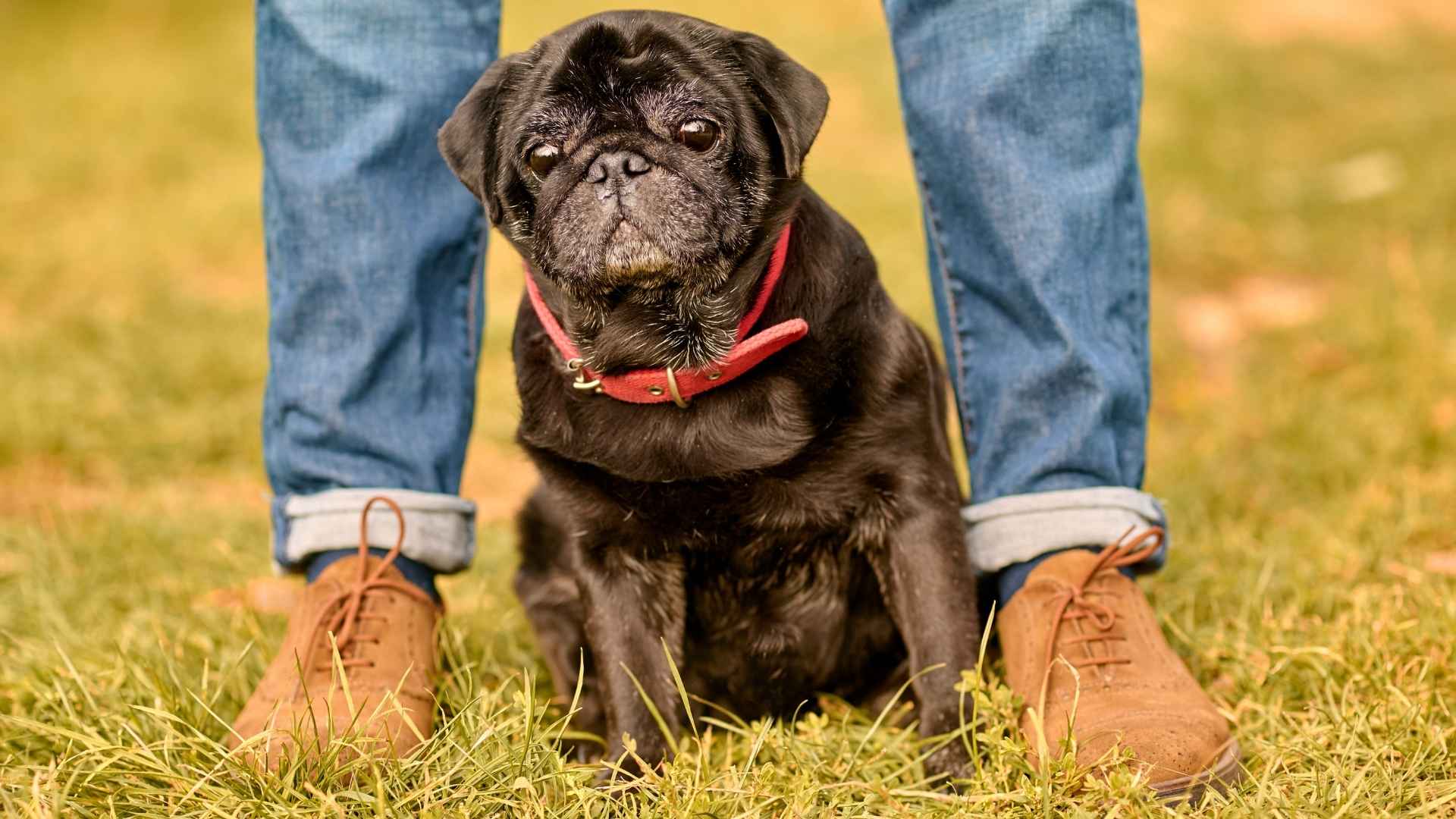They may fit snugly in your arms, but their hearts and talents are larger than life. Tiny service dog breeds are the unsung heroes of the canine world—compact, clever, and fiercely loyal. These little dynamos are proving that size has nothing to do with impact.
Service animals play a vital role in enhancing the lives of individuals with different types of disabilities. For those who are hearing impaired, suffer from severe PTSD, or experience epileptic seizures, a well-trained service dog can provide a sense of security and help manage or even prevent potential emergencies.
While towering service dogs often take the spotlight, small dog breeds are quietly working their magic, providing emotional support, alerting to health issues, and even assisting with physical tasks in ways that defy their tiny frames.
What makes these small dogs even more remarkable is how seamlessly they fit into everyday life. Need a helper who can join you on a plane or navigate tight urban spaces? A tiny service dog might be your perfect partner. They’re discreet, adaptable, and tend to form incredibly strong bonds with their handlers.
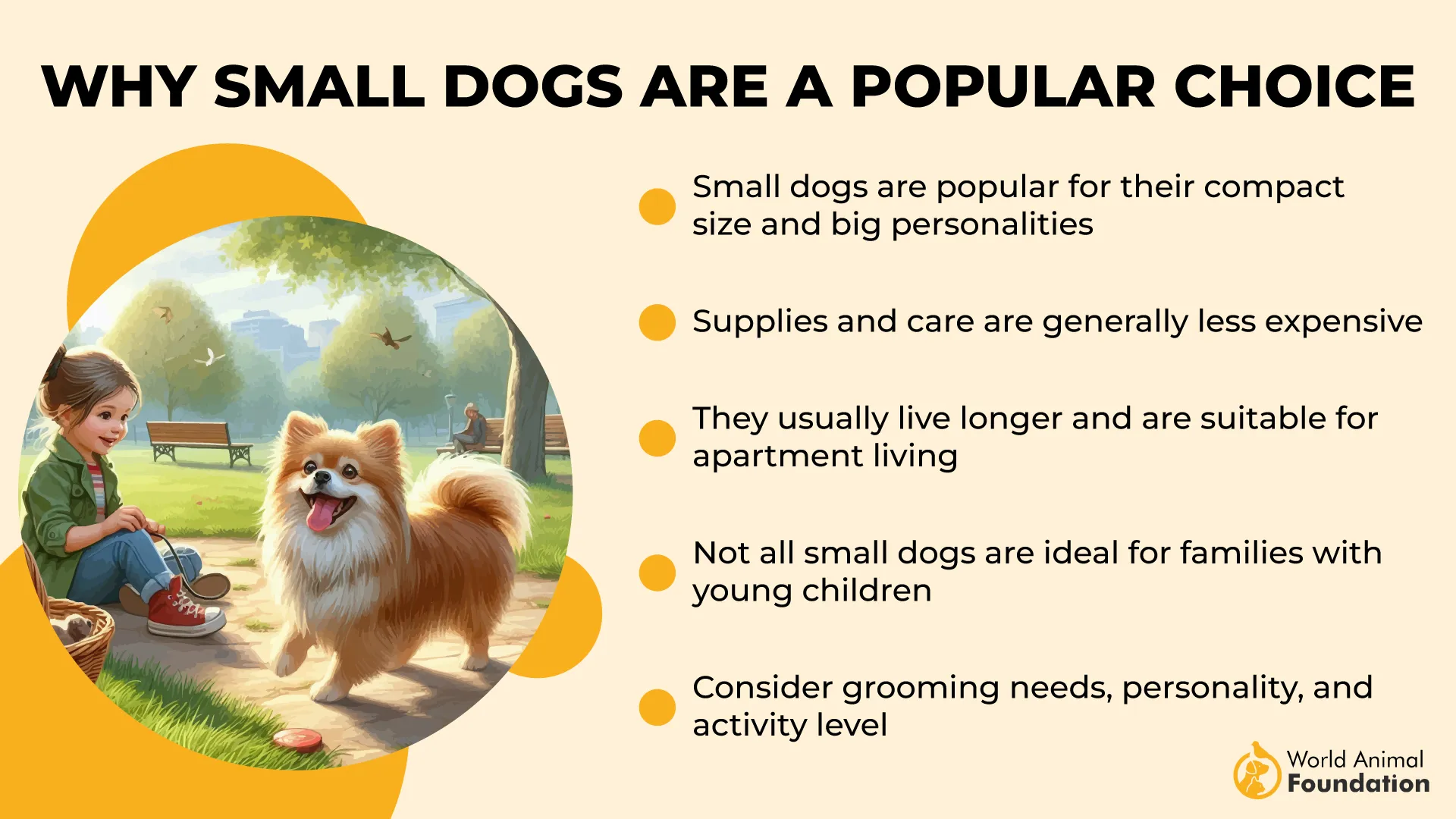
We’ll dive into the world of these mighty miniatures—what qualities make a small dog an excellent service dog, and why they’re becoming a popular choice for people seeking comfort and support in a compact package. If you’re searching for a canine companion that’s easy to carry but hard to live without, you’re in the right place.
Tiny Service Dog Breeds
1. Toy Poodle

Don’t let their salon-ready curls and dainty strut fool you—Toy Poodles are the Harvard graduates of the dog world. Behind those big eyes is a brain working at full speed and a heart the size of Texas (even though they weigh less than a bowling ball).
The Toy Poodle is the smallest of the poodle family, typically standing about 10 inches or less at the shoulder and weighing between 4 to 6 pounds. Despite their petite size, they carry themselves with elegance and confidence, making them both adorable and highly capable companions.
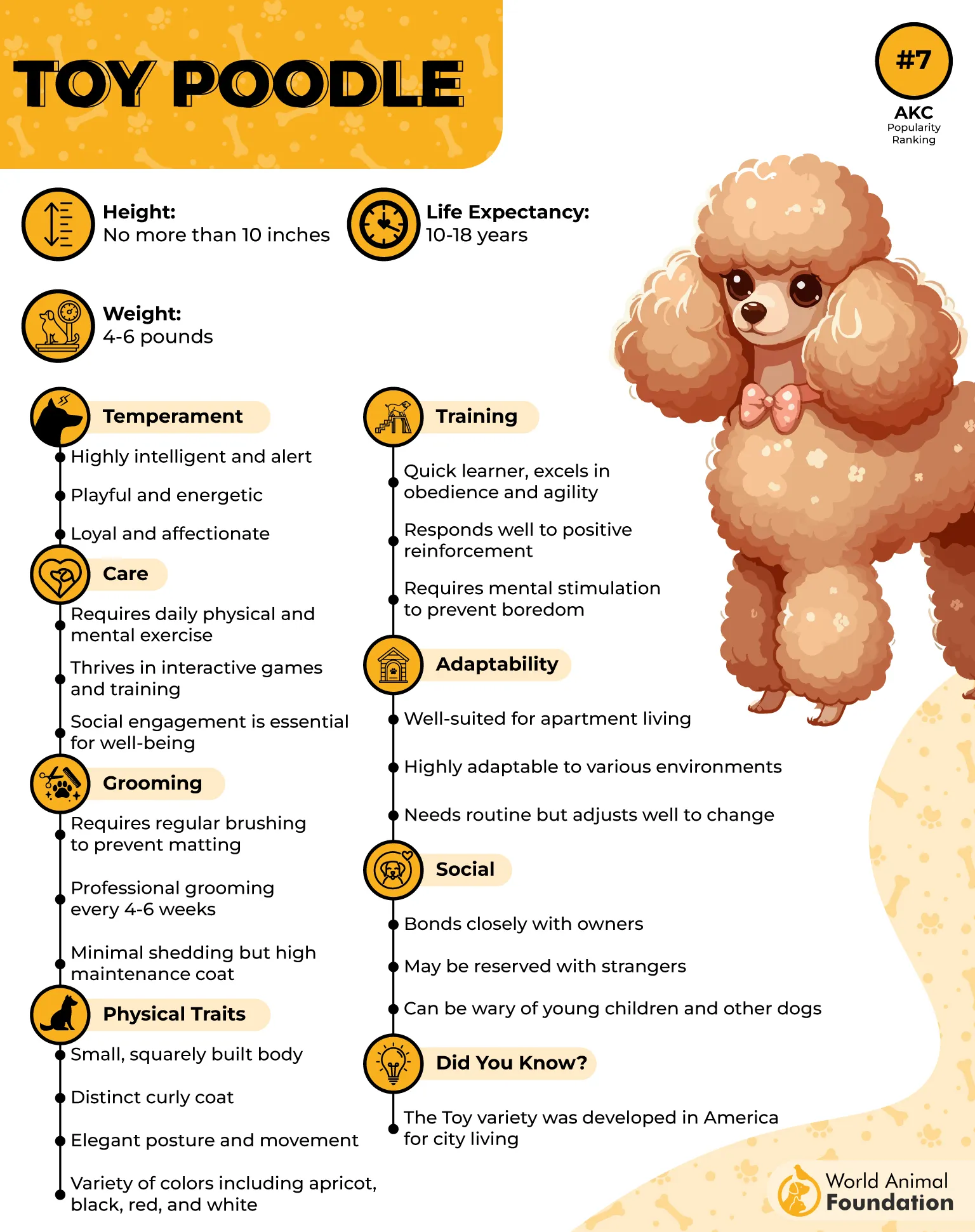
Toy Poodles are incredibly intelligent—in fact, they’re one of the smartest dog breeds in the world. Toy Poodles make excellent medical alert dogs for people with diabetes, epilepsy, or anxiety. They’re like little therapists with a perm.
Plus, their eager-to-please attitude means they’re always down for cuddles—unless they’re on duty, of course. Professionals don’t cuddle while they’re clocked in. (Okay… maybe just a little.)
What Tasks Can a Poodle Perform?
Fetching Items
Interrupting Harmful Behaviors
Encourage Self-Care
Provide Tactile Stimulation
With their hypoallergenic curly coats, these small dogs are a great fit for people with allergies, and their elegant appearance is matched by a friendly, affectionate personality. Toy Poodles thrive on mental stimulation and love being challenged with training or games, so they’re always ready to impress.
Fun Fact: If this dog were a human, it would run a tech startup and knit its sweaters in its downtime.
2. Chihuahua
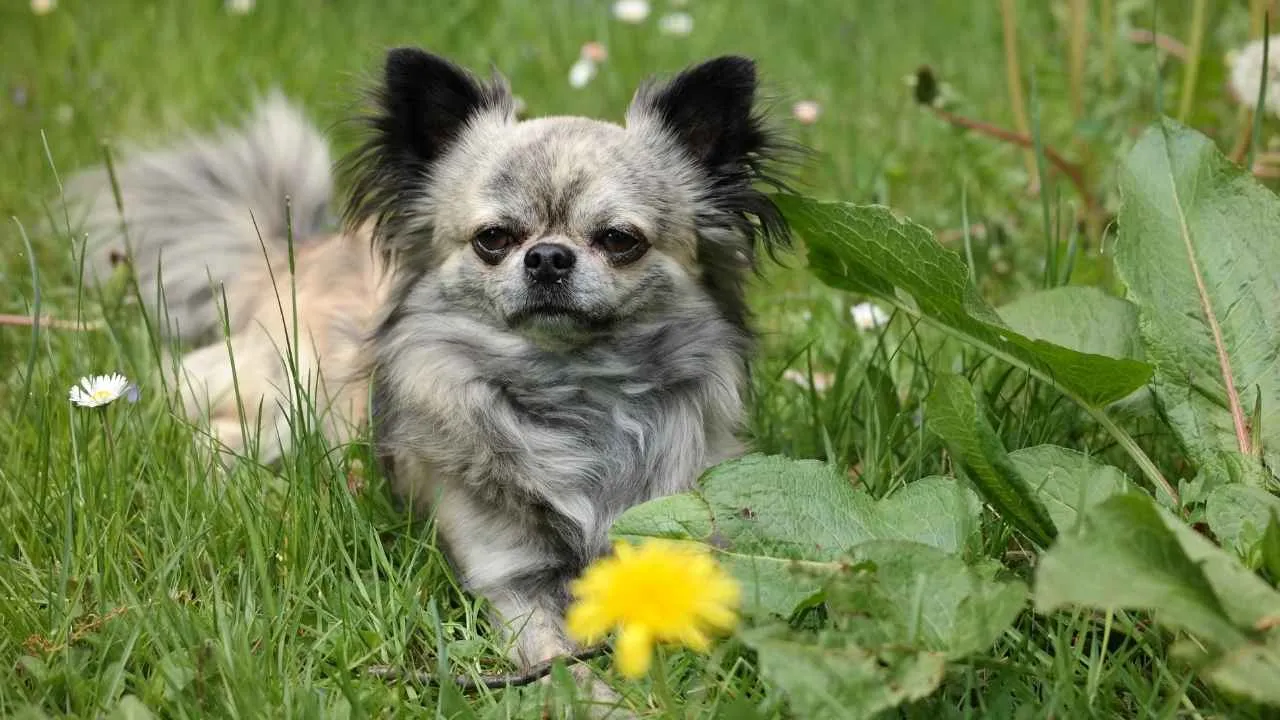
When you think “service dog,” a Chihuahua might not be the first furry face that pops into your head. But don’t be fooled by the teacup size or the diva attitude—these small dog breeds are tiny therapy dogs with a big bark and a soft spot for their humans.
According to the American Kennel Club (AKC), Chihuahuas are among the oldest breeds in the Americas, tracing their roots back to ancient Mexican civilizations. So yes, they’ve been fabulous and functional for centuries. Royal lineage, baby!
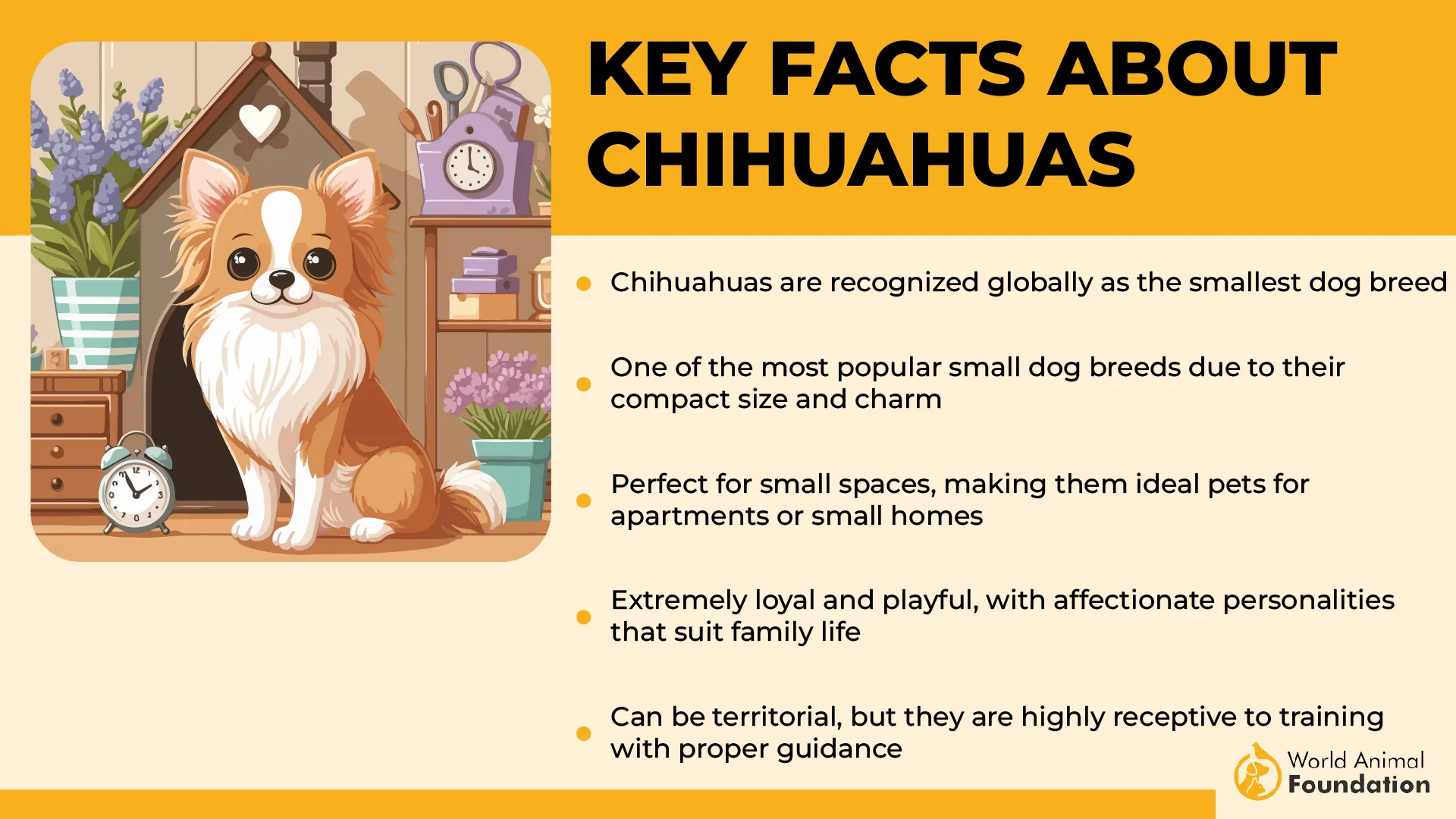
The Chihuahua is one of the tiniest dog breeds out there, typically weighing between 2 to 6 pounds and standing about 5 to 8 inches tall at the shoulder. Despite their small stature, they have a big presence and plenty of confidence packed into their compact bodies!
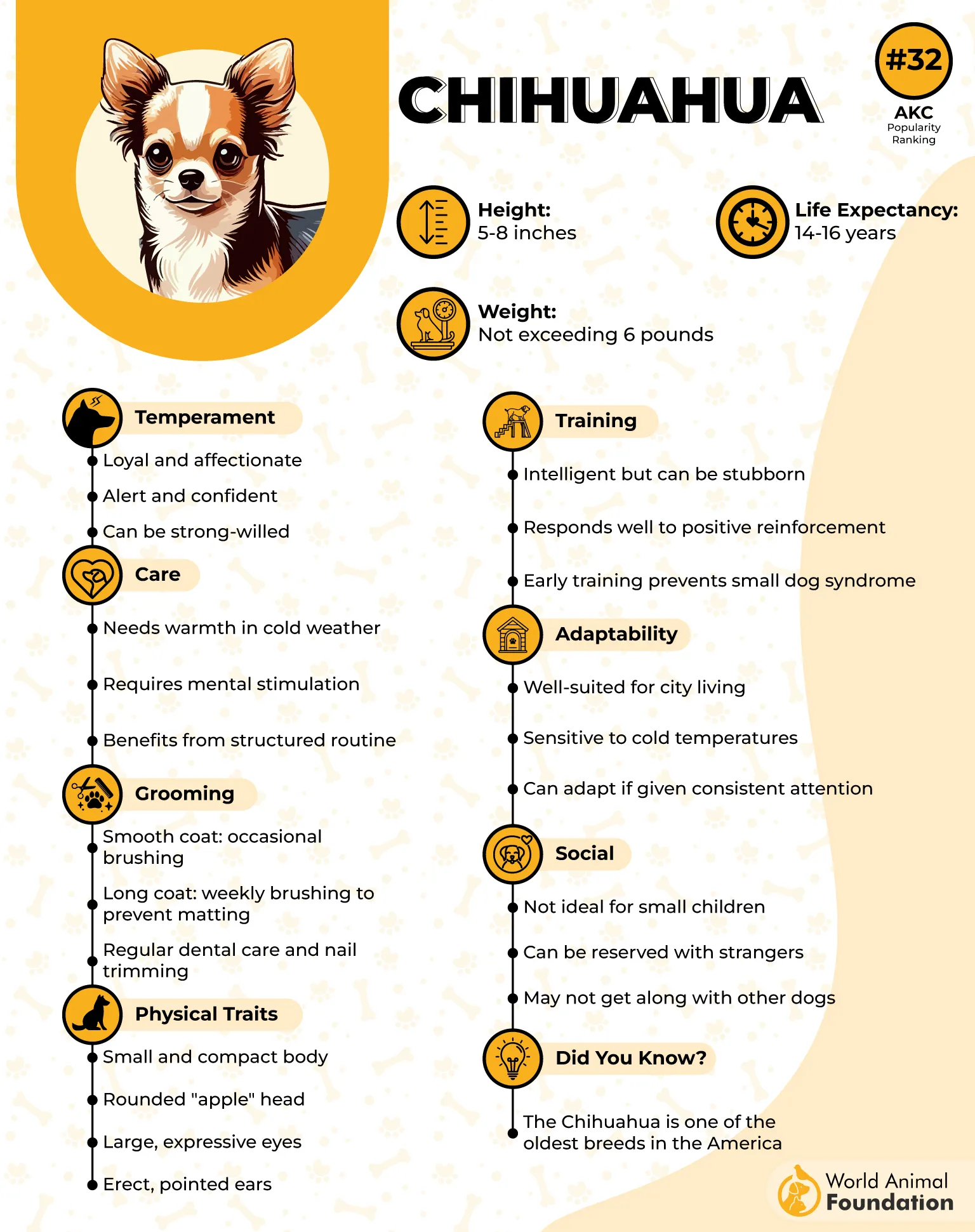
They can go anywhere—planes, trains, grocery stores, therapy sessions, or just chilling in your hoodie pocket like a four-legged burrito.
What Tasks Can a Chihuahua Perform?
Deep Pressure Therapy and Tactile Stimulation
Alerting Tasks
Retrieving Tasks
Chihuahuas have radar-like sensitivity to emotions. Anxiety episode? Your Chi will be on your lap faster than you can say “Where’s my weighted blanket?” Despite their reputation for sass, they’re sharp and capable of learning complex tasks like alerting to seizures or low blood sugar.
Fun Fact: A Chihuahua’s confidence is inversely proportional to its size. They may weigh five pounds, but in their minds, they’re the CEO of your entire household—and maybe the entire block.
3. Pug
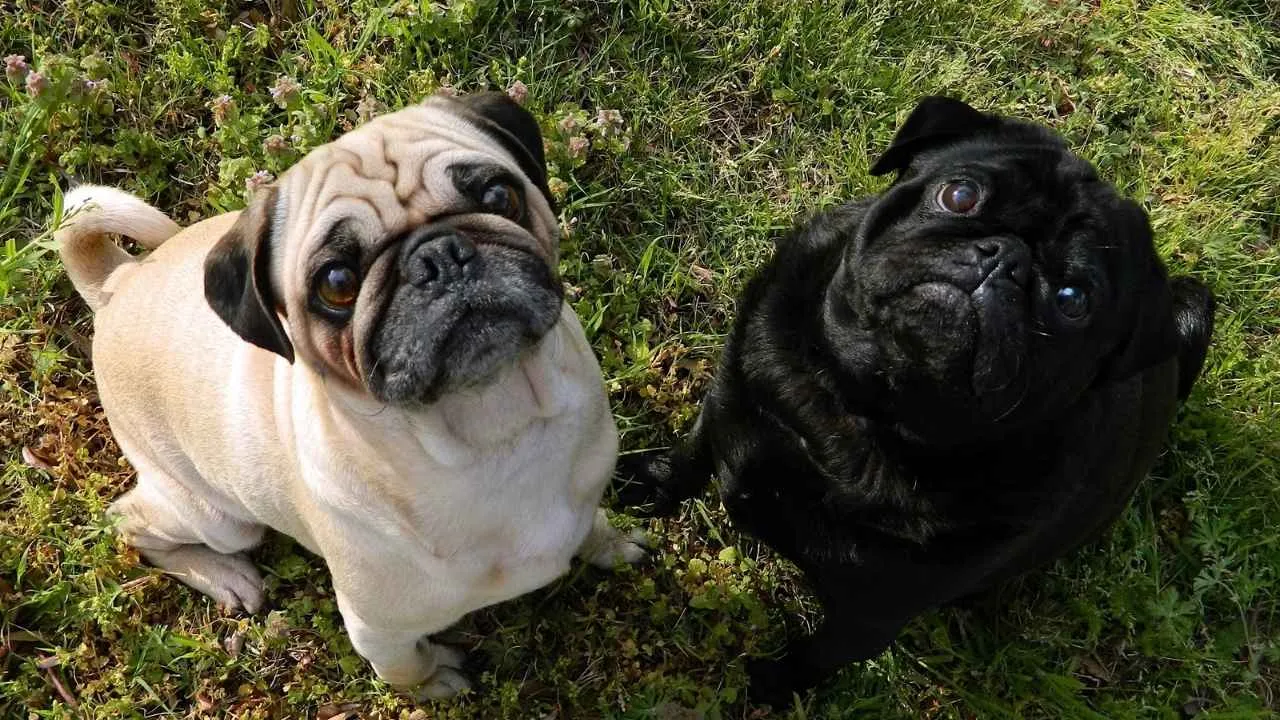
If your ideal service dog is part emotional support, part living potato, and all love, then say hello to the Pug. With a face only everyone could love, this snorty little shadow has mastered the art of emotional support through the sheer power of existence. Seriously, just look at them.
Pugs are small but sturdy little dogs, typically weighing between 14 to 18 pounds and standing about 10 to 13 inches tall at the shoulder. Their compact, muscular bodies are built for snuggling more than running marathons, which is perfect because they’re all about that chill life.
Naturally empathetic, they’re like furry mood rings who instantly pick up on your feelings and stick close until you’re smiling again (or offering snacks, whichever comes first).
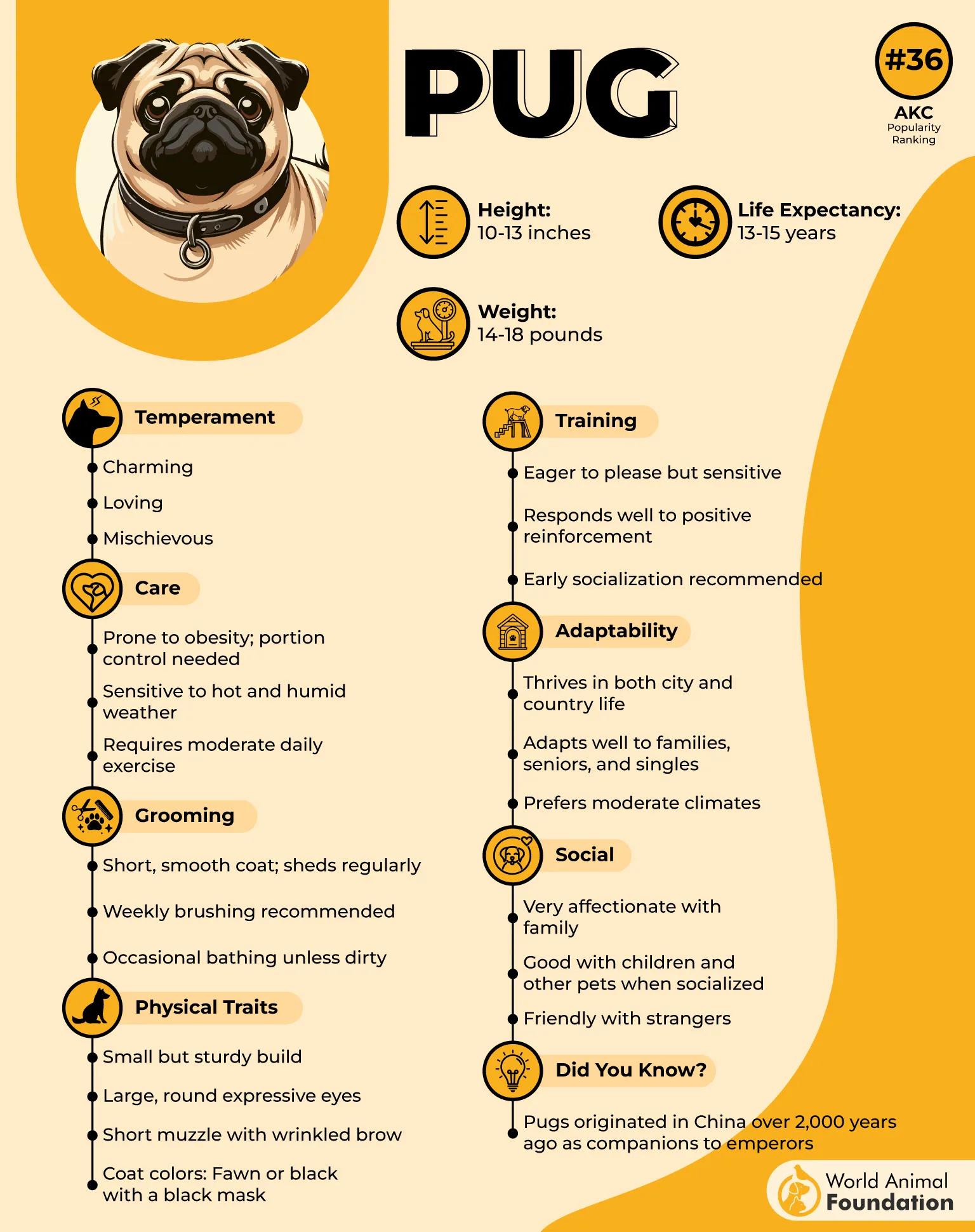
Pugs may not be agility champs, but their loyalty and calming presence make them excellent Psychiatric Service Dogs, especially for people dealing with depression, anxiety, or PTSD. They’re also known to be quite sturdy for their size, and that squishy face? Built for kissing away the blues.
What Tasks Can a Pug Perform?
Deep Pressure Therapy
Provide Tactile Stimulation
Danger Or Intruder Notification
According to Britannica, this small service dog breed isn’t ideal for hot and humid climates unless it spends most of its time indoors.
Whether you’re lounging on the couch, attending a therapy session, or just trying to pee in peace, a Pug will be right there, staring lovingly into your soul… probably wondering if snacks are involved.
Fun Fact: A Pug will snore like a 90-year-old trucker, but it’s oddly comforting. Think of it as white noise therapy with paws.
4. Yorkshire Terrier
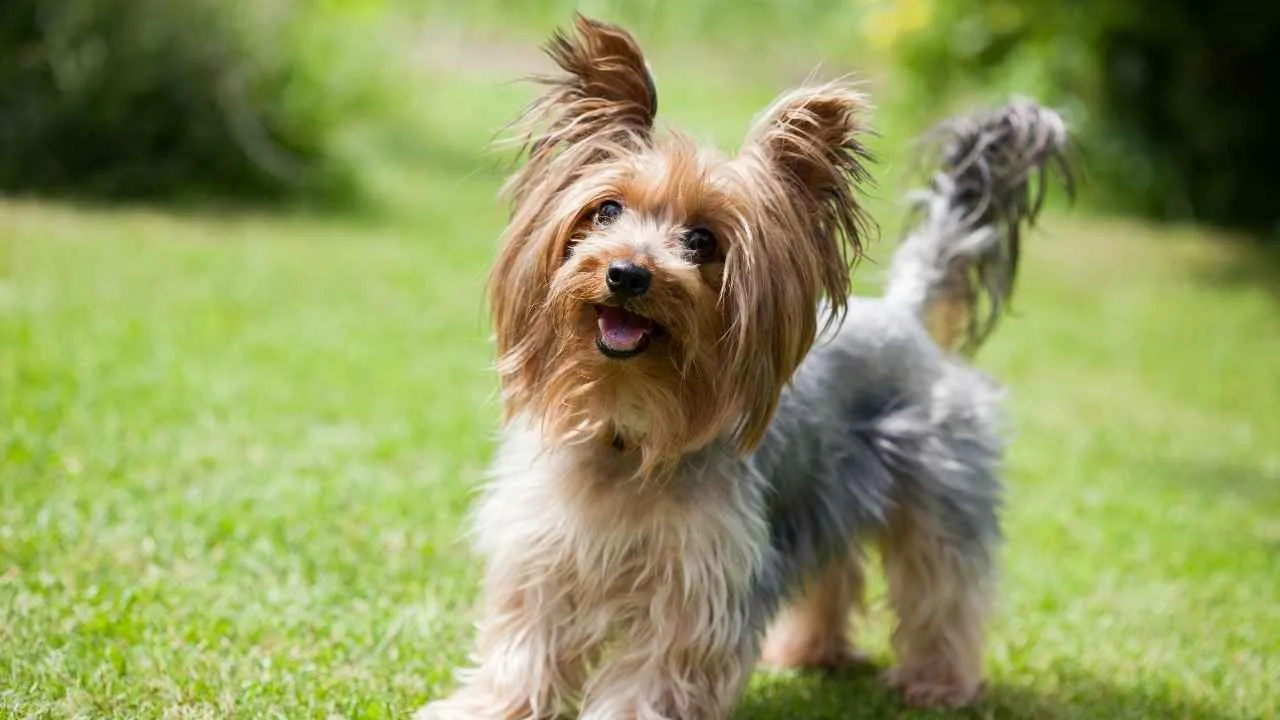
Yorkshire Terriers—aka Yorkies—are the canine version of a sassy Broadway star. They’re tiny, glamorous, full of personality, and capable of stealing the spotlight and your heart. But don’t let the silky coat and big eyes fool you—under that posh exterior is a brilliant little brain ready to work.
They may be tiny, but they’re absolute dynamos when it comes to service dog duties. These little charmers are incredibly smart and thrive on learning commands—Yorkies are up for the task.
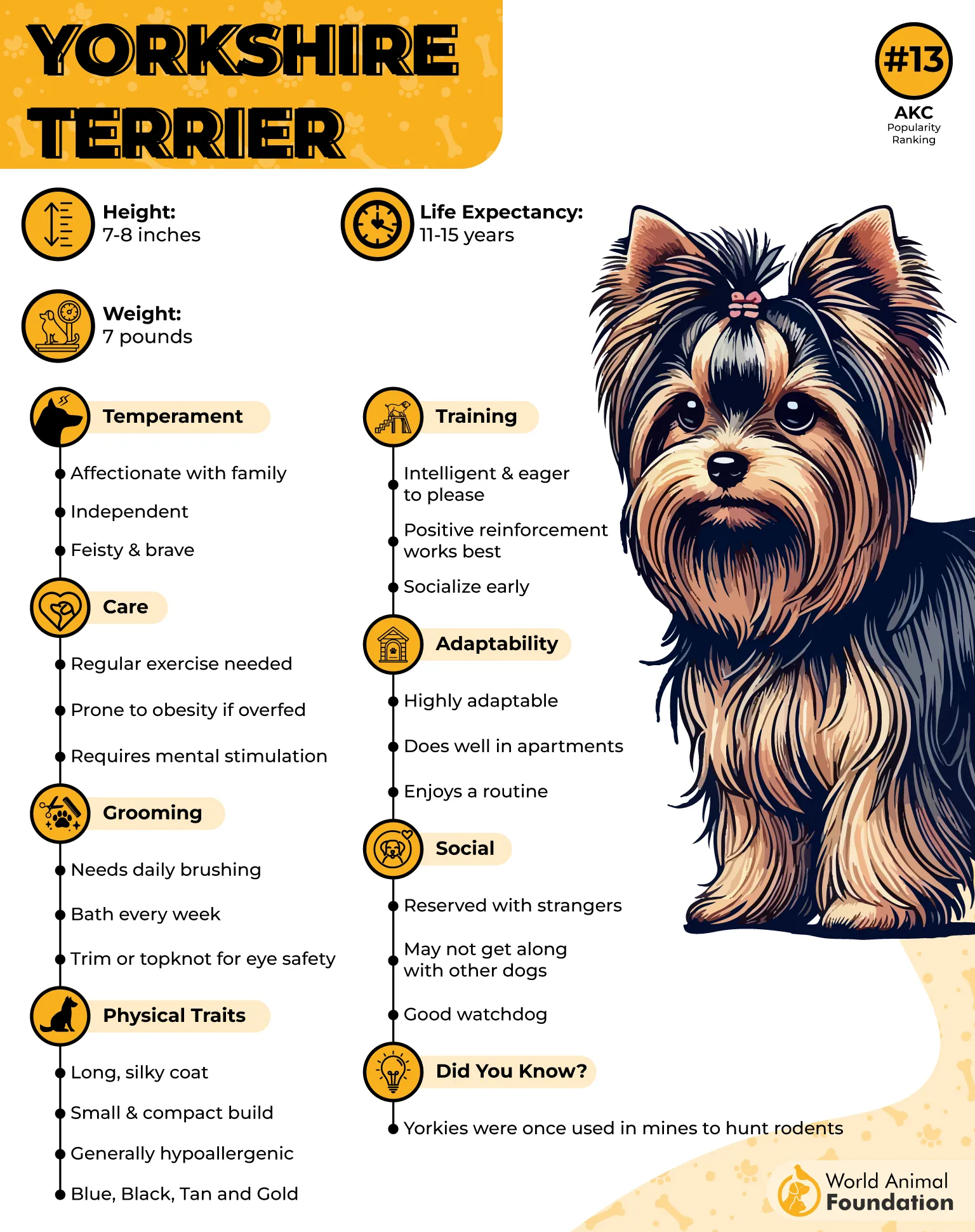
These small service dogs deeply bond with their owners and love to shower them with affection. Their playful energy makes them fun companions, but they also appreciate quiet cuddle time, showing a sweet, loyal side beneath all that feisty charm.
What Tasks Can a Yorkie Perform?
Mental Health Support
Alert Dogs
They’re also famously vocal, acting like pint-sized watchdogs who sound the alarm at the slightest disturbance. Sure, they might bark at the mailman like he’s an international criminal, but at least you’ll never miss a package.
Plus, they’re hypoallergenic, low-shedding, and so portable they could moonlight as designer accessories—just pop them in a tote bag and go. With brains, loyalty, and undeniable style, Yorkies slay the service dog game.
With proper training, Yorkies can be life-saving for people with diabetes (detecting blood sugar drops), anxiety, PTSD, or mobility challenges (retrieving small objects). They may look like lapdogs, but these pint-sized dynamos are athletic, focused, and deeply bonded to their humans.
Fun Fact: If Yorkies had a motto, it’d be “I bark, therefore I am.”
5. Bichon Frisé
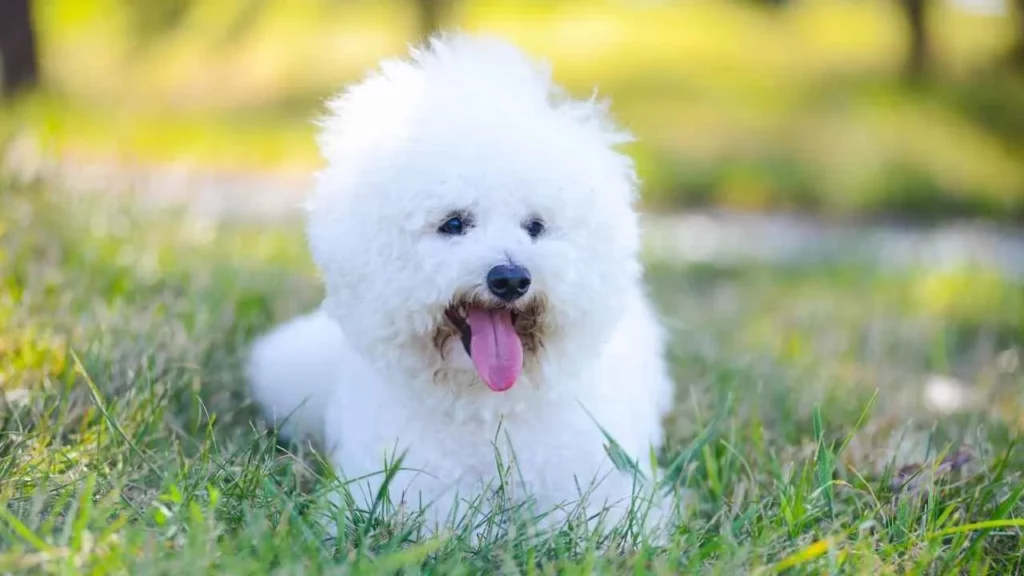
Imagine a marshmallow that grew legs, developed emotional intelligence, and now follows you around offering support—that’s the Bichon Frise in a nutshell.
With their powder-puff white coats and joyful strut, Bichons look like they were designed in a French patisserie and sprinkled with happiness. The Bichon Frise is a small breed, typically standing 9.5 to 11.5 inches tall at the shoulder and weighing between 12 to 18 pounds.
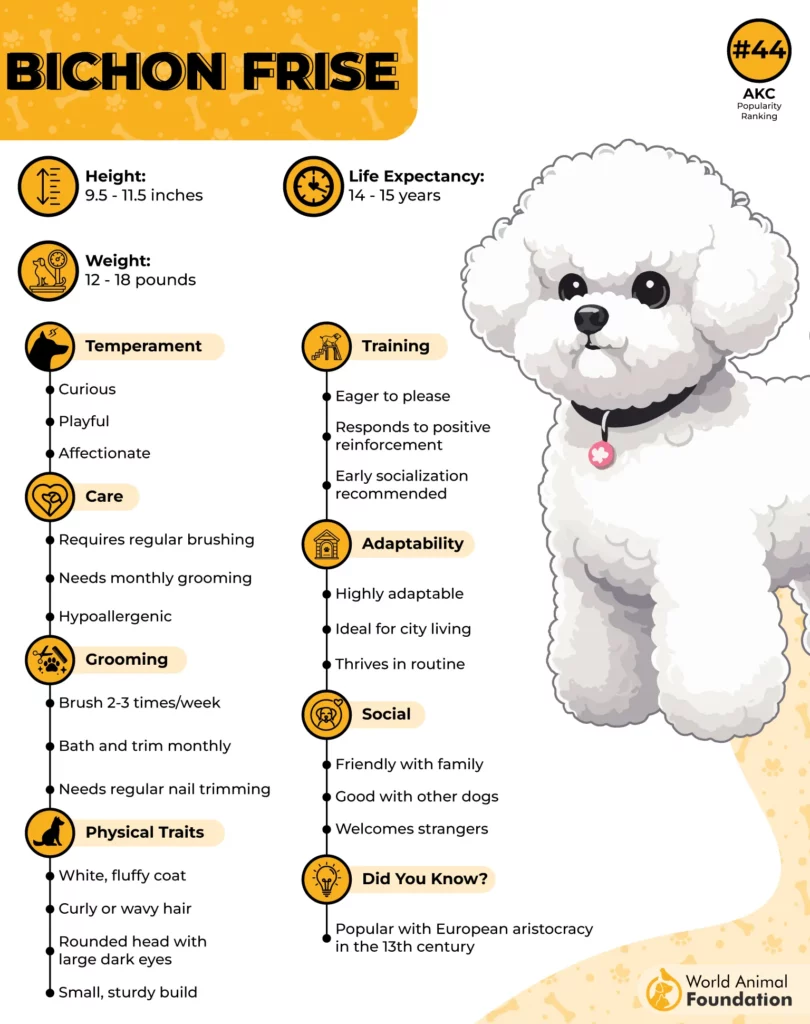
Their upbeat, people-pleasing personality helps them bond deeply with their handler, while their small size makes them easily portable and adaptable to different environments.
What Tasks Can a Bichon Perform?
Psychiatric Service Work
These cheerful fluffballs are well-suited for emotional support roles, especially for individuals with anxiety or depression. Their upbeat personality is infectious, and their desire to be by your side 24/7 makes them a natural fit for service duties.
As per WebMD, Bichons don’t shed much since their loose hairs get trapped in their curly coat. However, they require regular brushing to keep their fur from tangling and matting.
Fun Fact: A Bichon doesn’t walk—it bounces. And you’ll bounce right along with them, emotionally if not physically.
6. Dachshund
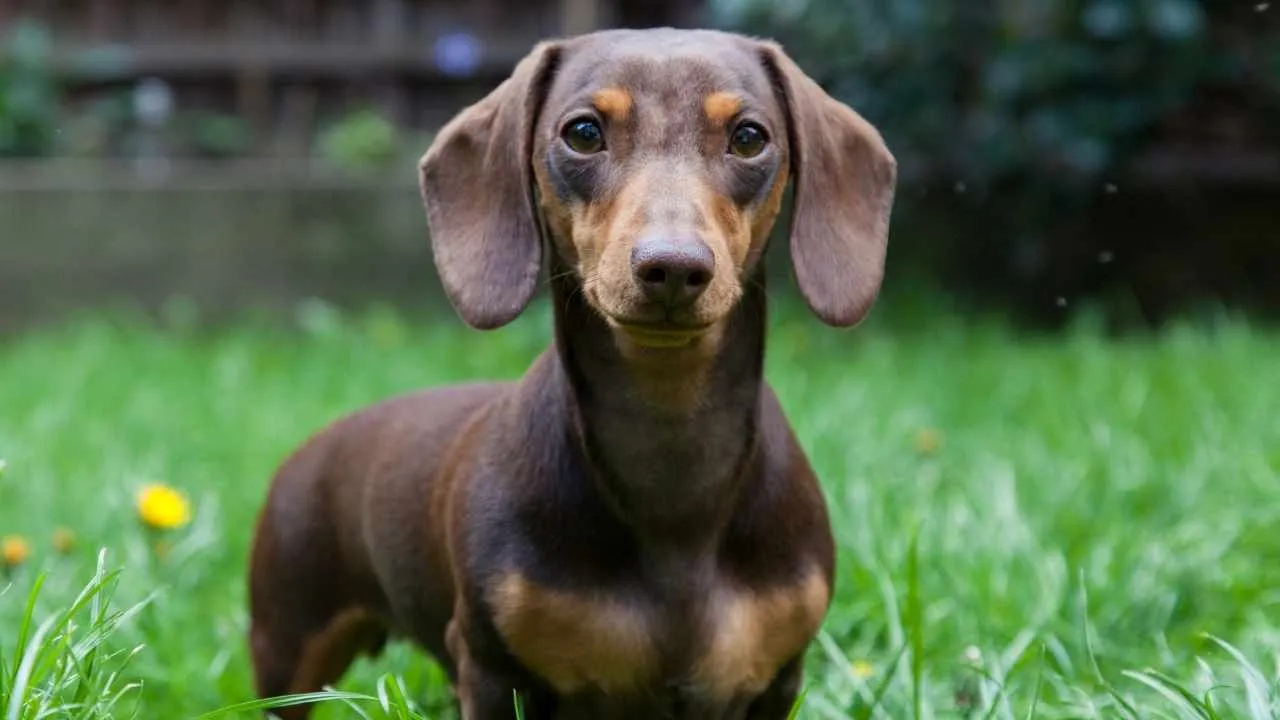
Meet the Dachshund—affectionately (and accurately) known as the Sausage Dog. With a body shaped like a loaf of bread and a personality that could fill a stadium, these pint-sized powerhouses were originally bred in Germany to hunt badgers.
Yes, badgers. That long, low profile isn’t just for show—it’s functional, fierce, and now, fantastically suited for service work… of a certain kind.
They form strong emotional bonds and have a sixth sense of your feelings. Feeling anxious? Boom—they’re in your lap before you can say “existential crisis.”
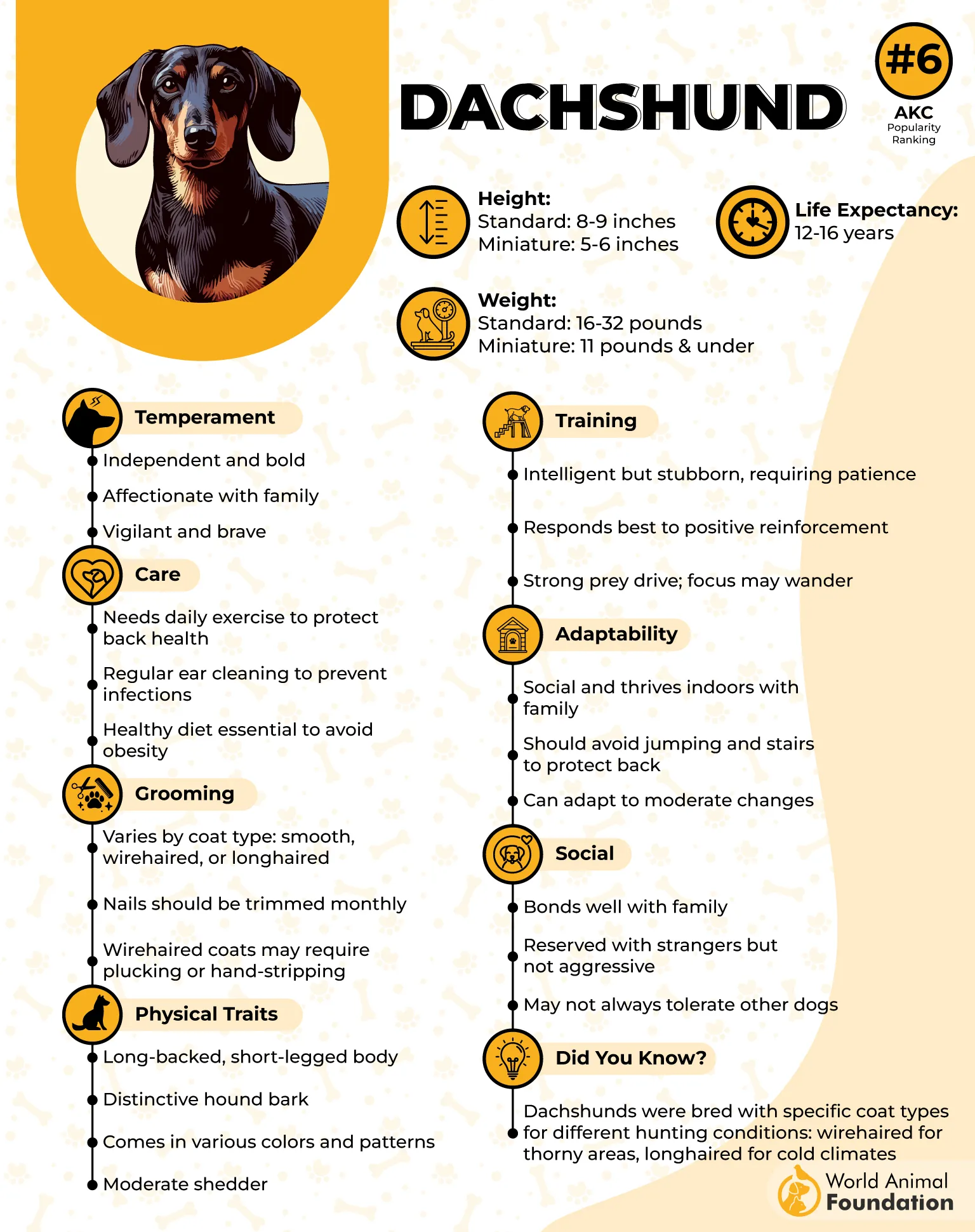
Due to their petite size and unique body structure, Dachshunds are not ideal for physical tasks like mobility assistance, such as pulling wheelchairs or balance support, unlike large breeds. But when it comes to psychiatric support, autism support, or alerting to health conditions (like seizures or anxiety attacks), this small breed service dog shines like the stars they think they are.
Smart (and a little sassy). They’re highly intelligent and great problem-solvers… with just enough stubbornness to make training feel like negotiating with a furry lawyer. Once a Dachshund decides you’re their person, it’s ride or die (preferably in a stroller).
What Tasks Can a Dachshund Perform?
Deep Pressure Therapy
Danger or Intruder Notification
Object Retrieval
Seizure Alerting Dogs
They’re commonly known for being smart, self-reliant, and occasionally a bit headstrong. Purina says the secret to training them lies in using positive reinforcement, staying patient, and maintaining a consistent approach.
Fun Fact: Despite having legs the length of a chicken nugget, they once hunted animals underground. Now, they’re more likely to hunt your missing socks or the last bite of your sandwich.
7. Beagle
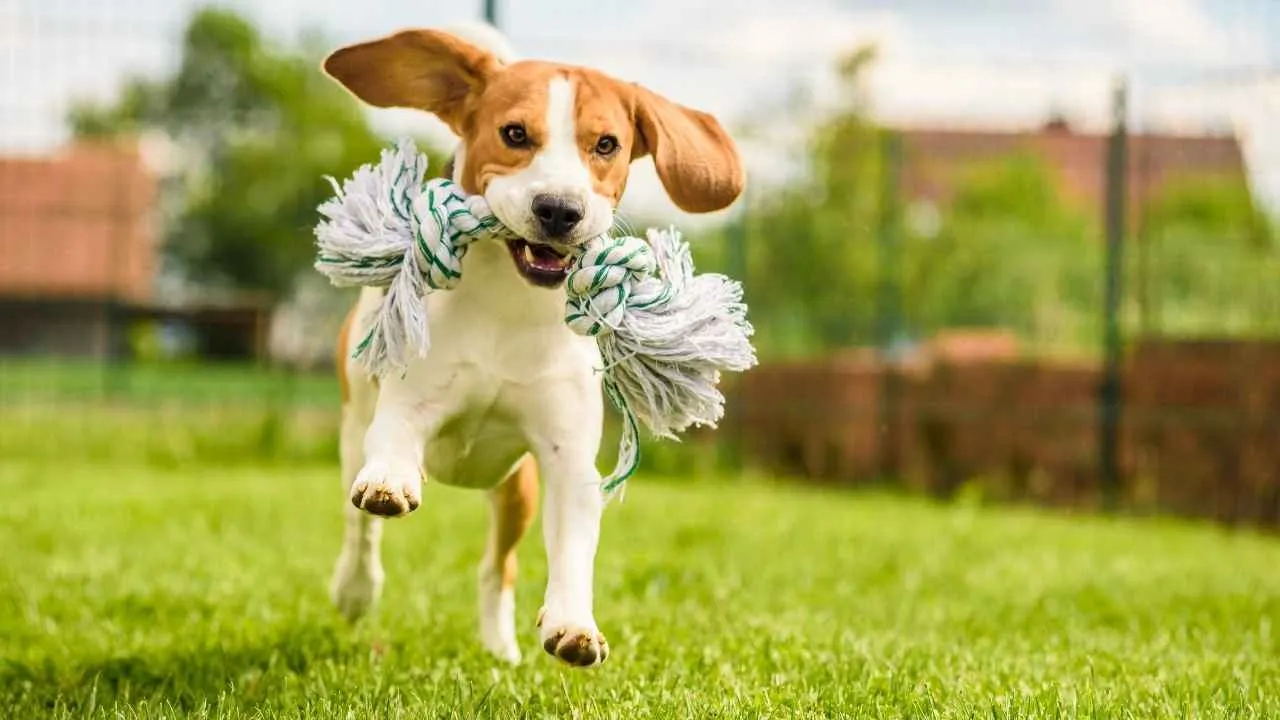
Alright, alright—we hear you. Beagles aren’t tiny tiny, but they still sneak under the “small dog” category, especially when you count how often they curl up into cinnamon-roll mode on your lap.
With those big brown eyes and floppy ears, Beagles are part detective, part emotional support buddy, and all heart. Beagles have scent receptors like a superpower, which can be used to detect medical conditions like low blood sugar or allergens.
Being affectionate and loyal, they’re like your shadow, if your shadow had a tail and a passion for snacks. They’re social butterflies who can thrive in a wide variety of environments—from a college dorm to a bustling city.
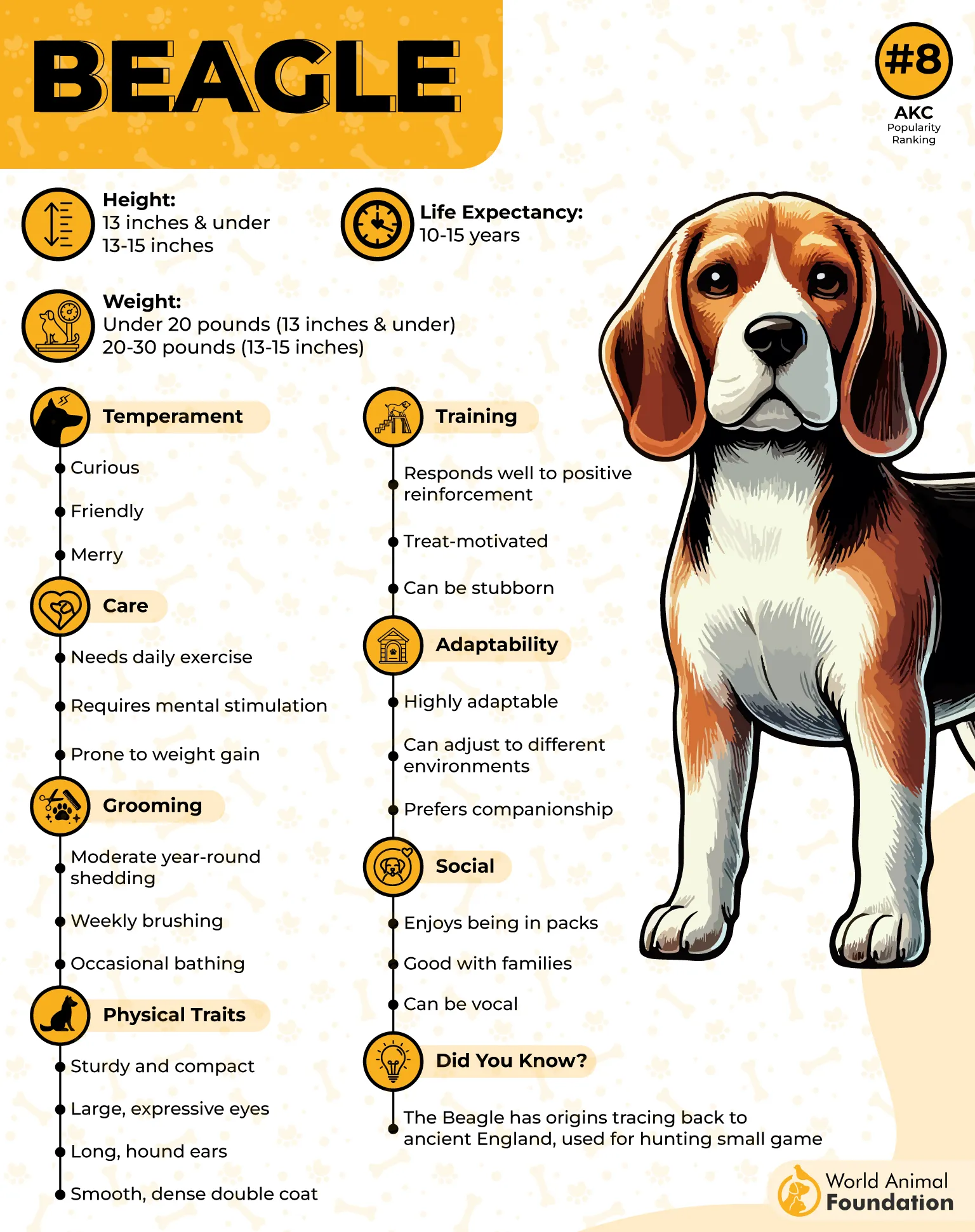
While they’re not typically used as mobility service dogs (they’re a little too short to open the fridge), Beagles can be an excellent choice for alert or psychiatric service dogs, especially when trained to respond to medical events or emotional triggers. Plus, their soulful expression can lift your spirits faster than your favorite playlist.
What Tasks Can a Beagle Perform?
Detecting Allergens
Alerting their Handlers to Medical Conditions
One tiny warning: Beagles are known to be vocal. Some call it howling. We call it “emotionally expressive performance art.”
Fun Fact: A Beagle’s nose can track a scent through an open field, a crowded room, or the bottom of your purse—especially if there are snacks involved.
Conclusion
While many people associate service animals with large service dogs like German Shepherds, Labrador Retrievers, Golden Retrievers, or Bernese Mountain Dogs, tiny service dog breeds such as the Cavalier King Charles Spaniel prove that great service dogs can come in a small package. These highly trainable, easy-to-train, and active breeds can perform specific tasks like alerting to certain sounds or a tachycardia episode alert dogs, supporting individuals with physical or mental disabilities, and even acting as hearing dogs or diabetic alert dogs.
Though they may need regular grooming and can sometimes have behavioral issues, the size of these cheerful breeds makes them ideal for children, mobility-impaired owners, or those who need a service dog to sit on someone’s lap. Small service dogs provide many benefits and help their owners lead more independent lives through dedicated service dog work.


